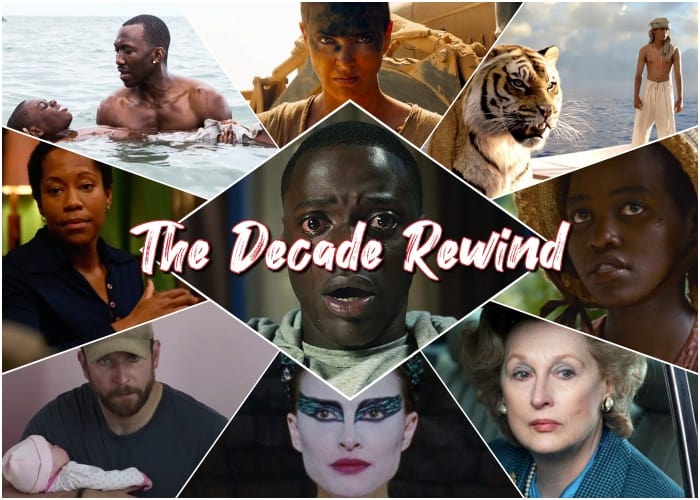
This guest essay is part of our Decade Rewind. Keep up as we look back at the best, worst, and otherwise interesting movies and shows of the 2010s.
“This was the worst Oscarcast I’ve ever endured. It’s time for the Board of Governors to have a long, sad talk with itself.” As might have been expected, no one sums up a dispiriting Oscars ceremony quite as well as Roger Ebert did. In his recap of the 2011 ceremony, he hit the nail on the head with his understanding that those behind the Academy Awards need to reflect on what the show has become and what it can be. If there was a single dominant idea behind the Oscars this decade, it’s exactly that: now is the time for changes.
The year before, one major change had already taken place. The 82nd Academy Awards, which aired in 2010, introduced ten nominees for Best Picture, an act that harkened back to ceremonies from the 1930s and 1940s when there were typically eight to twelve nominees. Prior to this change, five Best Picture nominees had become the norm. Doubling the potential nominees invited films outside of traditional Oscar fare into consideration. Films like Up and District 9 were put into contention for Hollywood’s highest honor, something that surely wouldn’t have happened if there were five nominees.
The same year, Oscar history was made when Kathryn Bigelow became the first woman to win Best Director and Geoffrey Fletcher became the first African-American to win an Oscar for screenwriting. These awards for The Hurt Locker and Precious: Based on the Novel “Push” by Sapphire, respectively, were heralded as a step forward in diversifying the Oscars. But as the last decade has demonstrated, there’s a fair question to be asked about how much optics play into the Academy’s supposed concerns regarding representation and how much recognition voters are willing to extend. As one example, since Bigelow’s win, the only other woman to be nominated for Best Director is Greta Gerwig, in 2017 for Lady Bird, and despite the film’s five nominations overall, it went home emptyhanded.
As we’ve seen before and we’ll surely see again, when it comes to progress with the Academy, the formula is often one step forward, two steps back. Over the last decade, there have been advancements, setbacks, predictable wins, and unprecedented shocks. While I have devoted an unhealthy amount of time to being emotionally invested in the Oscars, I can only assume that a more casual and well-adjusted viewer has not. The past ten years have offered more awards season drama than could ever be summarized, but I’ve scrolled through my mental Rolodex of grudges against the Academy and realized that the highlights and low points can provide a handy guide for reflection. Here I’ve broken down the past decade at the Oscars, beginning with the ceremony that honored films from 2010 and aired in 2011.
The 83rd Academy Awards

The Good: Natalie Portman picked up the Best Actress Oscar for Black Swan, a move that marked a pivotal point in her career, and one that has shaped her last decade. This is pure speculation, and maybe had Portman not won she would have had the same career trajectory, but it seems far more likely that after winning an Oscar, she had the platform and the confidence to make more off-the-wall role choices. Films like Jackie, Annihilation, and Vox Lux are in their own ways audacious risks. Portman has had a bold decade, and we can only hope this continues into 2020.
The Bad: Unfortunately, the exciting prospects afforded by ten Best Picture nominees ended with a rather predictable choice: The King’s Speech. Regardless of how one feels about the film itself, it’s undeniable that this was a safer choice than The Social Network or Inception, two films that were far more inventive and original, and that have made a much more lasting impact on film culture in the last nine years. These two films were in the running, and they won in other categories, but they didn’t take home the top prize.
The Ugly: Just a quick question: who in their right mind thought that Anne Hathaway and James Franco co-hosting was a good idea?
The 84th Academy Awards
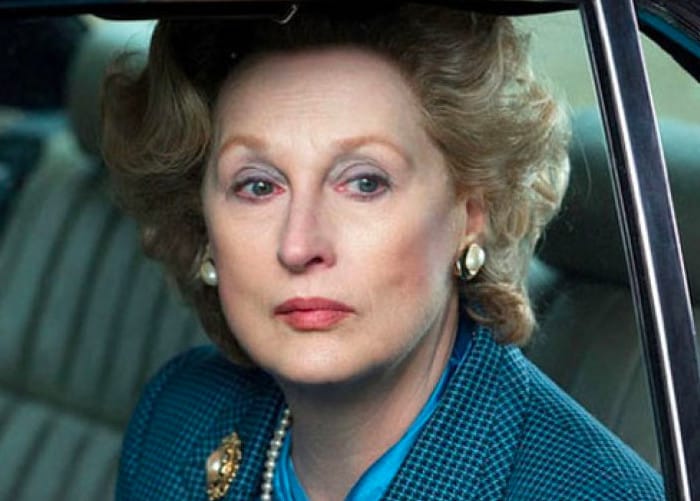
The Good: Uggie the dog from The Artist was a delightful addition to awards season, even if the film he was in ended up fading from public consciousness faster than you can say “Talkies.” The film is definitely enjoyable enough, but its flash in the pan success was indicative of this rather lackluster year at the Oscars.
The Bad: A lot of it, frankly. The show was rather predictable, with Oscar-bait films like The Iron Lady and The Help securing Best Actress and Best Supporting Actress Oscars, respectively. These wins for Meryl Streep and Octavia Spencer weren’t unsurprising or undeserved, it’s just that there are much stronger years where it’s hard to imagine they would have been in contention had the films come out at another time. Plus, Billy Crystal‘s dull hosting job meant that this already unremarkable show was especially draining.
The Ugly: Woody Allen took home an Oscar for Best Original Screenplay, a decision that has definitely aged very well and that surely not a single voter regrets.
The 85th Academy Awards

The Good: Ang Lee took home his second Best Director Oscar for his visionary odyssey Life of Pi. Among the acting nominations, Daniel Day-Lewis getting the gold statue for his immersive portrayal of the eponymous president in Lincoln wasn’t exactly a surprise, but it was a welcome win. There were nine total Best Picture nominees this year, and one of the benefits of the increased number was that, despite it being rare for a foreign film to be put in contention, Michael Haneke‘s brutally tragic and understated Amour received a nom. The film ended up taking home the Oscar for Best Foreign Language Film, and as much as I wish Emmanuelle Riva had won Best Actress, the film’s single win is well deserved and a more than acceptable outcome.
The Bad: Amy Adams lost yet another Oscar, this time for The Master, a loss that I did and still am taking harder than Adams herself.
The Ugly: The decision to have Seth MacFarlane host the show ended about as well as could be expected, with the comedian slammed for his distasteful remarks at the expense of the female nominees. Rather than admit he was out of line, the Academy stood behind MacFarlane, defending his expression of “creative freedom.”
The 86th Academy Awards
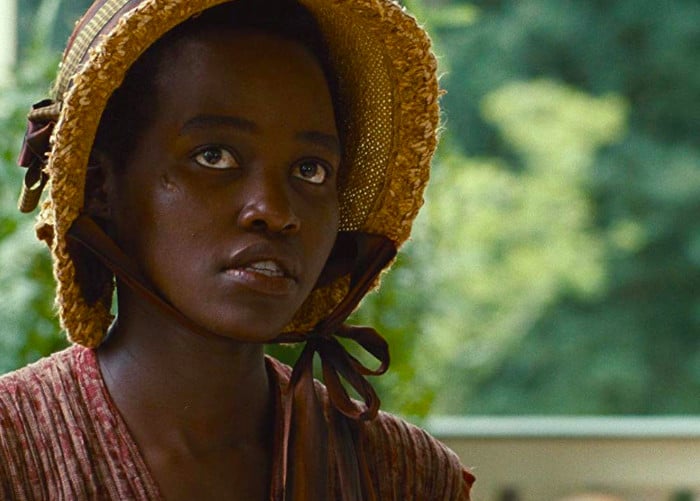
The Good: 12 Years A Slave winning Best Picture was a rather unexpected highlight of the show. The frankness of the film’s brutality would have surely been offputting to some voters, but this is also the same quality that earned it respect from many others. Even better was Lupita Nyong’o taking home Best Supporting Actress as part of what felt like a truly star-making role. I’m hardpressed to think of another performance from this decade that shot someone to fame and recognition as quickly as this did for Nyong’o. Among the other highlights was Spike Jonze winning Best Original Screenplay for Her, a beautiful and exceptionally touching film.
The Bad: The “Leonardo DiCaprio has been snubbed too many times” narrative was always pretty basic, but it’s also undeniable that his work in The Wolf of Wall Street is some of the best — if not the best — work of his career. His masterful portrayal of Jordan Belfort balances tone and displays some of the finest physical comedy of the decade. To top it all off, he makes it look effortless, which is probably the reason his impeccable performance was passed over in favor of Matthew McConaughey in Dallas Buyers Club.
The Ugly: Jared Leto won Best Supporting Actor for Dallas Buyers Club, which is actually great because what the world needs more of is cis men being rewarded for playing trans women.
The 87th Academy Awards

The Good: Folks, I gotta be honest: this is a rough one. But there’s always a silver lining and at least I can say we all got a good laugh out of the fake baby in American Sniper.
The Bad: The Best Picture race came down to Birdman vs. Boyhood, eventually going to the former. Here’s the thing: a lot of people like both films, but putting debates about the quality aside, this Oscar race marked what I believe to be a worrisome trend of valuing a difficult production process over the end result. The narrative around both movies quickly turned from a discussion about the films to a discussion about how hard they were to make; how they displayed technical craft; how much work had gone into them. It’s not that films don’t deserve recognition for their craft, they do — this is one of the reasons the Academy is long overdue in implementing a Best Stunts category — but that isn’t all that a film is. Sure, it’s unique and different to make a film look like it’s all one take or to film a story over twelve years, but if that’s all anyone can say about what makes a film remarkable, it’s not enough.
The Ugly: #OscarsSoWhite was the defining moment of this years’ awards season, and with good reason. All twenty acting nominees across all four categories were white, not to mention the implication that Best Picture nominee Selma apparently directed itself, with Ava Duvernay being overlooked for the nomination. If there’s a good thing that came from this willful ignorance of talented POC in the film industry, it’s that for many people, this was so blatant it became impossible to ignore.
The 88th Academy Awards
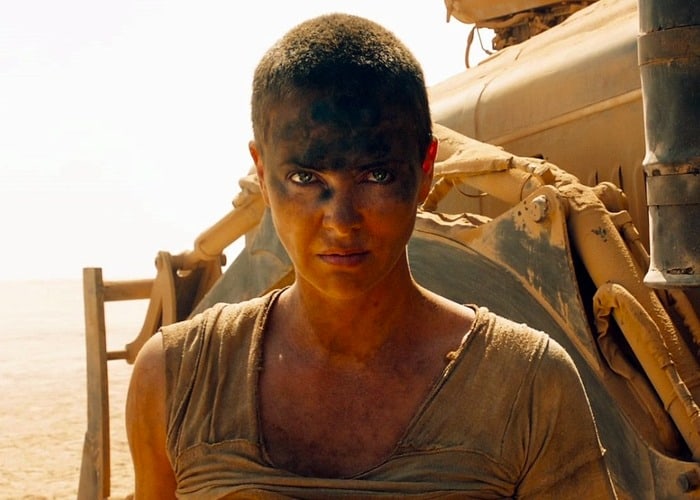
The Good: The legendary composer Ennio Morricone won his first competitive Oscar, an award that was a long time coming and unbelievably well deserved for his brilliant work on The Hateful Eight. The other big highlight of this year was Mad Max: Fury Road taking home nearly every technical award and ending the night with six total wins.
The Bad: In response to continued criticisms about a lack of diversity, the show’s host, Chris Rock, kicked things off with a joke at the expense of Asian children. I wish I was joking. The ceremony, much like the year prior, was marred by white nominees in every acting category. Plus, the category fraud Olympics — err, sorry, the Best Supporting Actress Oscar race — came down to Alicia Vikander vs. Rooney Mara, both of whom were definitely leads, and the gold statue ended up going to the former.
The Ugly: Remember when The Academy blasted Wagner — Hitler’s favorite composer — as the playoff music for Son of Saul, the Hungarian Holocaust drama? This was a move so bad you almost want to laugh about it. Almost.
The 89th Academy Awards

The Good: The actual winners this year were remarkably strong. Barry Jenkins‘ Moonlight took home Best Picture and Best Adapted Screenplay. In the acting categories, Mahershala Ali and Viola Davis were awarded well-deserved Oscars for Supporting performances in Moonlight and Fences, respectively. Plus, the impeccable true crime chronicle OJ: Made In America took home Best Documentary (and became the longest winner in history), and then the Academy swiftly changed the rules so as to disqualify a film like it from competing in the future (once again, one step forward, two back).
The Bad: The La La Land/Moonlight Best Picture catastrophe might have gotten hearts racing and made for good headlines and memes, but this ultimately drew attention away from Moonlight‘s worthy win by contributing to an imagined narrative of competition between Jenkins and Damien Chazelle, the writer/director of La La Land. The two filmmakers spoke highly of their friendship and made it clear they each had a huge amount of respect for the other, but the internet didn’t listen. Rather than allowing Moonlight to have its moment to shine, this mixup and the drama around it distracted from this monumental win. It’s a damn shame that, for all the years when this could have happened, it happened to the most deserving Best Picture winner in over a decade.
The Ugly: The hot take hill I’ll die on when it comes to the 89th Oscars is that the Natalie Portman vs. Emma Stone race for Best Actress distracted from the fact that Isabelle Huppert was criminally snubbed for her performance in Elle. That’s the loss we should all be outraged about.
The 90th Academy Awards
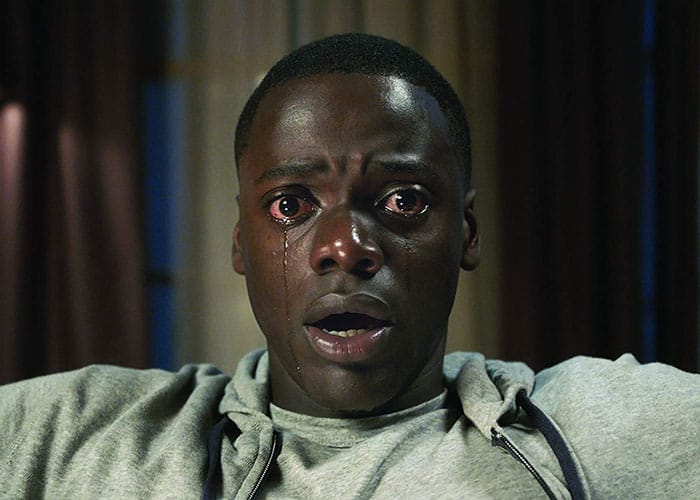
The Good: Patron saint of cinematography Roger Deakins finally — finally!!!!!!!!! — won an Oscar, for Blade Runner 2049. Plus, Jordan Peele picked up the Oscar for Best Original Screenplay for Get Out. The Academy has a long history of ignoring horror films, which makes Peele’s win both well-deserved and one hell of a pleasant surprise. Get Out was also nominated for Best Picture, and it was in uncharacteristically good company, being joined by some of the best films from this decade: Phantom Thread, Call Me By Your Name, and Lady Bird.
The Bad: The most common theme among Best Picture winners is that, more often than not, the films that take home the top prize feel like a safe choice. These films are inoffensive and pleasing, not especially bold or daring. And as much as The Shape of Water might be unique on the surface (pun not intended), it’s a painfully safe choice when compared to the much stronger films in the same category. The film offers little to no actual insight into the complexities of a relationship the way that, say, Phantom Thread does. Instead, it breezes through its central cross-species romance, banking on the idea that we’ll be too caught up in the film’s oddities to notice. But the biggest indicator of its safeness is the way that this allows the Academy to be insulated from criticisms of overlooking genre films. The Shape of Water is what I think of as genre-adjacent. It has fantastical elements, but it doesn’t go the whole hog, certainly not the way that Get Out — a straight-up near-perfect horror movie — does. Rewarding The Shape of Water is a way to appear genre-inclusive without actually giving Hollywood’s highest honor to a film that is unabashedly a horror movie.
The Ugly: Does ugly crying count? Because that’s what we all did when “Remember Me” from Coco was performed and then won Best Original Song.
The 91st Academy Awards
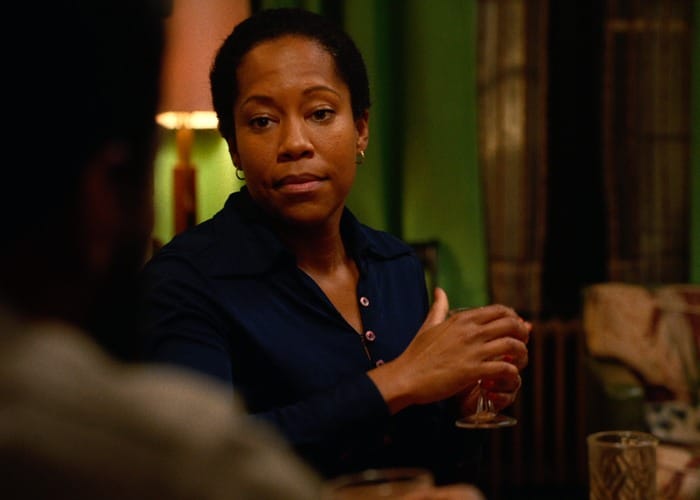
The Good: Regina King won the Best Supporting Actress Oscar for her delicately powerful performance in If Beale Street Could Talk. That was the biggest highlight, but also of note is that the decision to go host-less didn’t end up being that bad at all and wasn’t at all as disruptive as expected, though I still stand firm in my belief that the goal should not be to lose a host in order to shorten the runtime of the event. The Oscars happen once a year, they should get to be as long as they need to be.
The Bad: Best Picture is decided by a preferential ballot, which means that films can benefit from being a lot of people’s second or third choices, even if they’re not the first pick. While none of us know for sure, it seems likely that Green Book winning is the strongest example of this. It’s a film that exists to be as feel-good, inoffensive, and non-confrontational as possible, at the expense of insight, nuance, and reflecting reality. Green Book plays fast and loose with historical facts and manipulates the truth in its portrayal of Don Shirley (Mahershala Ali). It’s unfortunate the film got away with this and even more unfortunate that it was rewarded. This made for an exceptionally disappointing Oscars ceremony, with very few worthy nominees to even root for, let alone worthy winners to be pleased about. This dismal ceremony was a new low point for me as an avid follower of awards season. I’m used to being mad at the results, but this year I was mostly apathetic. I prefer it when I at least care enough to get angry.
The Ugly: Ethan Hawke gave one of the greatest performances of the decade in First Reformed and wasn’t even nominated. Will God forgive us for this sin?
Overall, the past decade has been rocky. The choice to allow the Best Picture nominees to range from five to ten is one of the best decisions the Academy could have made, and as much as I have gripes with many of the winners, this is undeniably a step forward. The push for inclusion is an important one; there needs to recognition for emerging diverse voices, as well as the people that have put years’ of work in and have never gotten their due. There’s been some progress in this regard, but by no means is it enough.
While the Academy waffles on a few different ideas — whether to have a host, whether to include a “Popular Film” category, whether the ceremony should be shorter, whether to rename or rework certain categories, whether there should be only one sound category/award — what has become clear is that those in charge need to figure out what they want this ceremony to be and what kind of films they want to reward. As more and more Oscars fanatics, myself included, find themselves fed up, it’s starting to feel like one step forward, two steps back isn’t going to cut it for much longer.
To borrow from Ebert, I think it’s time for the Board of Governors to have another long, sad talk with itself.
Related Topics: Academy Awards, Decade Rewind, Oscars

